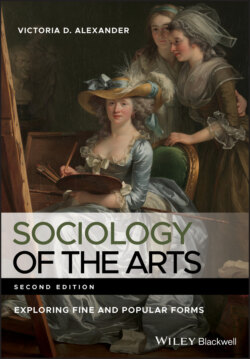Читать книгу Sociology of the Arts - Victoria D. Alexander - Страница 43
Art and Civilization
ОглавлениеA number of nineteenth century intellectuals wrote about the uplifting, civilizing effects of the fine arts. Matthew Arnold (1960 [1869]), a poet and literary critic, was one of these early shaping theorists. He believed that “culture” was made up of the “best that has been thought and said in the world” (p. 6). For Arnold, art included only the fine arts. The fine arts provided uplift due to their “moral, social and beneficial character” (p. 46). Their purpose was “to make reason and the will of God prevail” (p. 42) and they should do this by portraying “sweetness and light” (p. 46). Through their influence, people will be led away from their baser instincts, letting go of envy, spite, hostility, and anger. The fine arts, he believed, should be available to everyone in order to improve the general condition of all humankind. Without their civilizing influences, society falls into “anarchy.”
The spirit behind Arnold’s work was widespread. The famous art historian and social critic John Ruskin thought that art (and nature) were antidotes to tenement living, and that making art was therapeutic for everyone who did so. These ideas were also a key part in the establishment of museums and heritage organizations in both the UK and the US at the turn of the nineteenth century (see Cintron, 2000; DiMaggio, 1982a, 1982b).
Despite the laudable goals of the social reformer and the spirit of noblesse oblige embodied in the actions of these nineteenth century elites, there were also strong currents of class antagonism in the “culture and civilization approach” (Storey, 2015). In the context of the suffrage agitation of 1866–1867 (which resulted in reforms that doubled the electorate by allowing households in the boroughs the right to vote), Arnold (p. 105) wrote:
the working class…raw and half‐developed…long lain half‐hidden amidst its poverty and squalor…[is] now issuing from its hiding‐place to assert an Englishman’s heaven‐born privilege of doing as he likes, and beginning to perplex us by marching where it likes, meeting where it likes, bawling what it likes, breaking what it likes.
According to Arnold, the civilizing effects of the fine arts, and culture in general, worked on all classes, but differently for each class. Through education, culture shaped the middle classes as they took up power and leadership and it prepared the aristocracy for its inevitable decline. For the working classes, however, culture inculcated a humbleness and an acceptance of the authority to which they were to submit.
